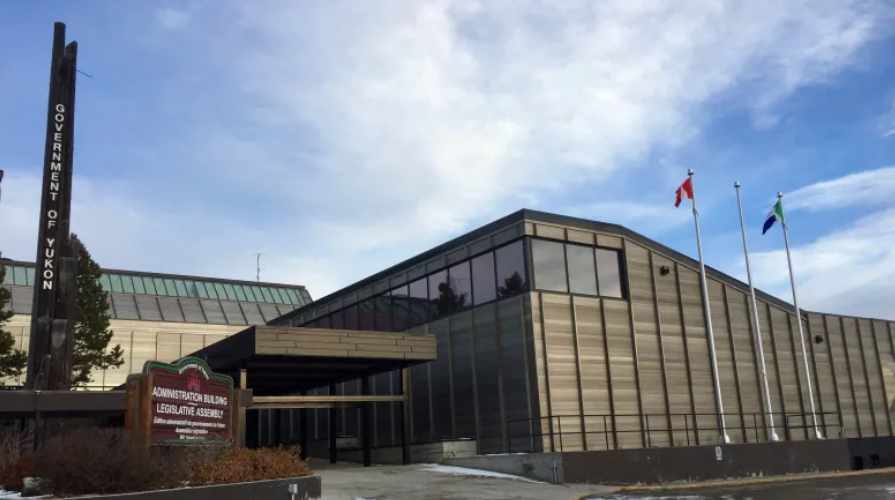Canada’s Yukon territory plans to move mental health positions out of communities: internal emails

There’s ‘not a substantial enough caseload to justify an in-community nurse,’ says one email dated May 19
The Yukon government plans to move mental health positions out of communities, according to internal emails obtained by CBC News.
Three nursing positions in Haines Junction, Watson Lake and Ross River are slated to be relocated to Whitehorse, emails show.
The decision appears to have been made weeks before a report was released by the Office of the Auditor General of Canada, which points to problems with recruiting and retaining mental health staff in rural Yukon.
While CBC News was able to verify the emails originated from the Yukon government, the name of the sender is redacted.
“These positions have been difficult to recruit for and in these communities, there is not a substantial enough caseload to justify an in-community nurse, given that their caseloads are highly specialized (severe and persistent mental health),” states an email dated May 19.
“These nursing positions will be better utilized if located in Whitehorse for coordinating services for clients with psychiatric and opioid treatment in Whitehorse — and traveling [sic] to communities for medication monitoring and administration.”
It’s unclear if the positions have been transferred to Whitehorse yet.
Spokespeople with the Department of Health and Social Services didn’t reply to multiple requests for comment.
The positions in Haines Junction and Watson Lake have been vacant for some time, it seems. The Ross River-based nurse needs to be accommodated because “they cannot work in the community and require support in Whitehorse,” an email states.
Since 2018, there have been four mental health “hubs” across Yukon in total. The two others are located in Carmacks and Dawson City.
The position in Dawson won’t be affected because “it is currently working well and serving the needs of Old Crow,” a government email states.
‘These positions were created to support communities’
NDP Leader Kate White called the move problematic.
“You’re removing that immediate support from the community and removing that support from that team,” she said.
“These jobs were created to support communities.”
White said this is an example of the Yukon government centralizing services during a time when it’s clear more mental health supports are needed in communities — not less.
“I think what the department really needs to answer is was that at the direction of the folks who work in those places?” she added. “Was that in consultation with communities?”
Steve Geick, the president of the Yukon Employees’ Union, told CBC News the move is going to leave a gaping hole in services, adding the problem is systemic.
“If they [the Yukon government] think it’s hard to fill positions now, it’s only going to get worse,” he said.
Community staffing woes ongoing: report
A report released by the auditor general delves into how well the Yukon government is supporting the mental health needs of rural residents.
While the audit found that the Yukon government has made improvements, it’s grappled with retaining mental support staff in rural areas for some time — and compounding the problem is a lack of housing in those places.
Originally, the department planned to have 33 staff members in the communities. In August of last year, though, there were 26, according to the report.
“This finding matters because vacancies in human resources put pressure on existing staff and have a negative impact on the level of service the hubs are able to provide,” the report states. “Such vacancies also negatively affect continuity of care, which is an important factor in establishing trust between clients and mental health service providers.”
The report makes four recommendations for the Department of Health and Social Services to implement, one of which involves developing a recruitment and retention strategy.
The department states in the report that implementation of such a strategy started last fall.
“The initial focus will be on hard-to-fill positions, including nurses, social workers, mental health nurses, and clinical counsellors,” it states. “Going forward, the department will take innovative approaches to recruit for these hard-to-fill positions and then to retain the employees, including flexible work arrangements.”
Related stories from around the North:
Canada: Mental health in Arctic Canada – Can community programs make the difference?, Eye on the Arctic
Finland: Psychologists in Finland sign climate petition, citing concerns for youth mental health, Yle News
Sweden: 2018 drought took toll on Swedish farmers’ mental and fiscal health, research say, Radio Sweden
Russia: Why high suicide rates in Arctic Russia?, Deutsche Welle’s Iceblogger
United States: Alaska capital budget vetoes to hit homelessness, addiction treatment, Alaska Public Media



